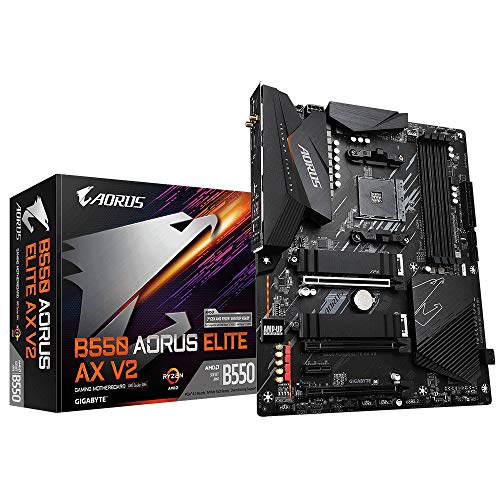Understanding AMD Motherboards: What You Need to Know
What is an AMD Motherboard?
AMD motherboards are the essential circuit boards that host the AMD processors and connect all your hardware components, such as RAM, graphics cards, and storage devices. They provide the platform for communication between these parts. AMD’s offerings feature a variety of chipsets, each designed to support different levels of performance, features, and future upgradability.
Why Choose AMD?
Choosing an AMD motherboard often comes down to performance, compatibility, and value. AMD processors, particularly Ryzen models, have gained acclaim for their impressive multitasking capabilities and price-to-performance ratio. If you’re looking for high-performance gaming or content creation without breaking the bank, AMD motherboards can be the right choice.
Key Features to Look For in an AMD Motherboard
Socket Compatibility
One of the first aspects to assess is the CPU socket type. AMD’s current processors employ the AM4 socket, making it crucial to ensure your chosen motherboard features this socket if you’re looking to use Ryzen processors. Knowing the socket type helps prevent compatibility issues before making your purchase.
Chipset Differences
Chipsets play a pivotal role in determining the features and performance of your motherboard. For instance, higher-end chipsets like X570 support advanced capabilities like PCIe 4.0 which allows faster data transfer speeds. If you’re interested in overclocking or want a robust feature set, opting for motherboards with X570 or B550 chipsets is advisable.
RAM Capacity and Speed
RAM slots vary between motherboards, typically providing between two to four DIMM slots. Additionally, the maximum RAM speed and capacity differ, affecting system performance. If you plan to run intensive applications or gaming, opting for motherboards that support higher RAM speeds and larger capacities will be beneficial in the long run.
Connectivity Options
Modern motherboards feature various connectivity options including USB ports, HDMI, DisplayPort, and Ethernet ports. Consider what external devices you plan to use. If you’re a gamer or content creator, additional USB 3.0 and USB-C ports can enhance your workflow by allowing quicker data transfers.
Choosing the Right AMD Motherboard for Your Needs
For Gaming
If gaming is your primary focus, look for motherboards that offer excellent VRM cooling, support for PCIe 4.0, and robust Ethernet options for online play. Models with RGB lighting may also appeal to gamers looking to create a stylish setup.
For Content Creation
Content creators should prioritise motherboards with multiple USB ports, increased RAM capacity, and support for high-speed SSDs. Features like Thunderbolt compatibility can significantly enhance productivity when handling large files.
For General Use
For general purposes such as web browsing and media consumption, a mid-range motherboard with basic features should suffice. Look for models that balance price with decent capacity for upgrades should your needs change in the future.
Upgrading Your System: When to Consider a New AMD Motherboard
Performance Bottlenecks
If you notice significant slowdowns or your existing motherboard fails to support the latest CPU or RAM upgrades, it may be time to consider a new AMD motherboard. Upgrading can unlock better performance by allowing the latest technology to work seamlessly together.
Future-Proofing
As software demands increase, having a motherboard that supports newer technologies will provide you with an edge. If you foresee yourself wanting to upgrade your CPU or RAM in the coming years, investing in a higher-end motherboard can save you hassle later.
Our Top AMD Motherboard Recommendations for Different Budgets
Budget-Friendly Options
For those on a tight budget, look towards models like the ASUS TUF B450M-Pro Gaming. It doesn’t skimp on essential features like decent build quality and enough upgrade options for casual users.
Mid-Range Choices
A solid mid-range option is the MSI B550-A PRO. It offers a balanced feature set, including excellent power delivery for modest overclocking and support for faster RAM, making it perfect for both gaming and content creation.
High-End Recommendations
If you’re ready to pull out all the stops, the ASUS ROG Crosshair VIII Hero is an excellent choice. This motherboard supports overclocking, features high-quality components, and includes advanced cache and speed capabilities for high-performance tasks.


































